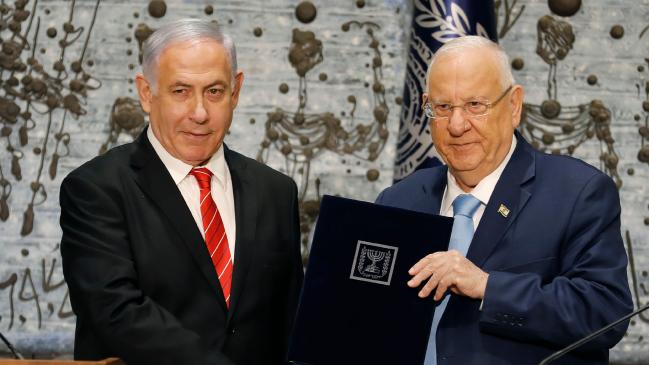IN THE MEDIA
Israel prez cements ties
February 21, 2020 | Naomi Levin

This article was first published in The Daily Telegraph on February 21 2020.
Democracies by their nature are robust arenas for often pointed free speech. However, it is unusual when the person taking liberties is the largely ceremonial head of state, and the man he is publicly rebuking, is the prime minister he asked to form government.
This week, Israeli President Reuven Rivlin will land in Australia on an official visit. It is the third visit by an Israeli President to Australia, but the first in 15 years.
Rivlin – who was elected to the presidency by the Israeli Knesset in 2014 after a long political career – is known for standing his ground.
He is a strong advocate for robust liberal democracy in general, and for encouraging greater inclusion of Israel’s Arab population in particular. And it was in this context, late last year, that Rivlin publicly rebuked Israeli Prime Minister Benjamin Netanyahu for his loose comments about Israeli Arabs during one of Israel’s recent election campaigns.
“We, who live as sovereigns in our country, the Jewish and democratic State of Israel, must ensure equal rights and respectful and meaningful discourse with all Israelis,” Rivlin said. His words were directed at Netanyahu and other legislators who had made controversial remarks about Israeli Arab voters.
What might make this intervention more surprising is that Rivlin comes from a right-wing political background and was a member of Netanyahu’s own Likud party prior to becoming president in 2014. The two have long had a lukewarm relationship, with Netanyahu opposing Rivlin’s bid to become president.
Before being elected President, Rivlin was speaker of Israel’s parliament. His first visit in this role was to Umm al-Fahm, an Israeli Arab town near the West Bank border which some, including the recent US-proposed peace plan, have suggested could become part of a Palestinian state under any future peace deal. There, Rivlin met with the town’s mayor in a bid to “develop dialogue, to stop sweeping things under the table”.
Rivlin’s bid to represent all Israelis, regardless of faith, is increasingly important in the wake of Israeli Arab opposition against proposals, such as this one, to relocate populations into a future Palestinian state. Most Israeli Arabs strenuously oppose the idea, wishing to remain part of Israeli society.
Since becoming president, Rivlin has established an NGO called Israeli Hope. The aim of the organisation is to promote diversity and inclusion of all of Israel’s demographic groups in academia, education and sport.
And Rivlin practices what he preaches. His long-time chief-of-staff is a PhD-educated, ultra-Orthodox mother of 11 who is able to perform her professional duties while maintaining her religious practices.
The President also speaks Arabic – one of Israel’s three official languages – which helps him relate to all Israelis.
Rivlin’s visit to Australia will further strengthen ties between his country and ours.
Those ties have already been elevated this year by Australian Governor-General David Hurley’s January visit to Israel, where he sat down with Rivlin at the President’s residence in Jerusalem.
Rivlin’s reciprocal trip will continue this process as the relationship between Israel and Australia continues to mature. Both countries are increasingly sharing expertise on issues ranging from water scarcity to cyber-security.
Israel has also stood by Australia during the summer bushfires, with Israelis hosting fundraising benefits, a group of Israeli innovators brainstorming hi-tech solutions to Australia’s climate challenges, and Israeli zoos supporting their Australian counterparts dealing with the overwhelming task of wildlife rescue.
Rivlin could also be excused for using his Australian visit as a much-needed break from his country’s topsy turvy politics.
Like the Australian Governor-General, Rivlin has a largely ceremonial role. However, after elections it is his role to meet with all party leaders and then task a Member of Knesset with forming government. Often this is a straightforward job, however Israel has been without a government for nearly a year, as parties struggle to form a workable governing coalition.
Israel held an election in April 2019, just a few weeks before Australia’s federal election. Yet unlike our quick count and immediate resolution on the evening of the poll, no ruling coalition could be formed, and despite a subsequent election in September, Netanyahu continues to lead a caretaker government.
Another election looms in Israel on March 2. Once votes are counted, Rivlin will again be tasked with assigning responsibility for forming government with the Member of Knesset he feels has the greatest chance of success.
Suffice to say, his trip to Australia will likely be the calm ahead of the expected hurly burly after March 2. But with the widely respected Rivlin at the helm, Israel is in good hands.
Naomi Levin is a senior policy analyst at the Australia/Israel & Jewish Affairs Council (AIJAC)





